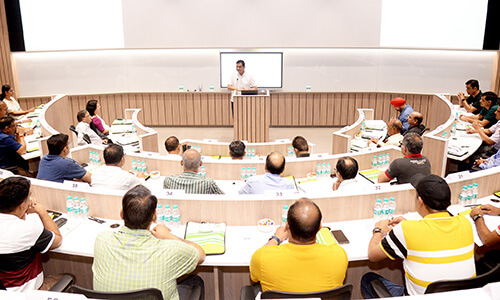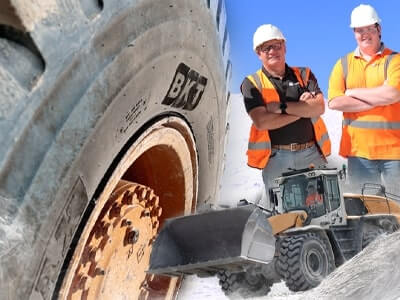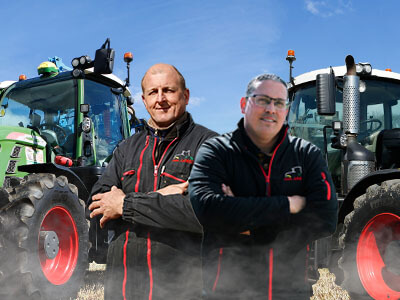GUEST 1 – MICHAEL MCNEILL
Our first guest is an agronomist from the USA. He is also the President of Ag Advisory Ltd, an independent crop consulting service in Iowa that’s been advising farmers for more than 20 years. He is joining us from Iowa. I’m delighted to welcome Michael McNeill. We are honored to have you here Michael – thank you so much for your time.
It’s a pleasure
Over to you, Adrian!
Thanks Ann Helena! Michael, it’s good to meet you and I’m looking forward to hearing more from you! I know this is a topic about which you’re very enthusiastic – which is why we have you here today, of course.
Tell me, what’s the big deal with soil health?
I'm pretty enthusiastic about studying soil health and getting to know a little bit more about it. You say: Why is it such a big deal? Well I like to refer to: What is soil health? Soil health, I think, has been really clearly described by the Natural Resources Conservation Service here in the US They say it's a continued capacity of soil to function as a vital living ecosystem that sustains plants and animals, and humans. I think that's the key piece right there. It is a living ecosystem. With our concentration on input agriculture, we've sort of forgotten that soil is a living organism. We've concentrated on various inputs and what they all can do for us in making farming more effective, more efficient, and easier. In doing so, we have definitely put great pressure on these living organisms.
That's a terrific way to set the scene for our discussions today, Michael. But briefly, let me play Devil's Advocate for a moment. Despite all the concerns about soil health, or indeed the deficit in it, we're still managing to grow crops and lots of them. How do we impress upon farmers both those currently farming
and the new generation as well, something we're going to look at in a future episode, that our attitude to soil needs to change. As you mentioned earlier, we are facing a loss of a lot of the quality of our soils and of the soil itself. But I think probably the fastest way to change our attitude toward that is to show how doing
some of these improvements that increase soil health, improve profitability of agriculture. And there's nothing that will get a farmer's attention quicker than to improve his profitability. You've mentioned 2 things there: profitability, but also quality. Now, Michael, what about environmental quality? Soil health can influence that, too, can't it, in the wider ecosystem?
It certainly can. I think that with this increased interest in carbon emissions and increasing carbon dioxide in our atmosphere, we're overlooking the possibilities that exist in having our soil sequestered. A lot of that excess carbon dioxide can be very effective in doing that. But in doing so, we have to change a few of our practices. It also increases the water infiltration. We're having serious flooding issues, and it certainly can help along those issues as well.
Yeah I'm glad you mentioned that, Michael, because water storage, I think, is a critical aspect. The better the soil health, as you just said, we've got an opportunity to reduce the risk of flooding, haven't we?
We certainly do. As we try to get more efficient in our agricultural production, we've gone to bigger and bigger farm equipment, which is heavier. Heavier equipment puts compaction in the soil. As the soils become more compacted, water infiltration slows way down. In addition, we've seen some things
changing in our climate, where we're seeing a lot more intensive rainfalls over short periods of time. So water infiltration becomes even more important. When you put these 2 things together, it really is important to us to pay attention to good soil health.
You've made a very good point there, Michael, about water and water use efficiency. I know your colleague, Dr. Hatfield, has looked at this in particular and the benefit that an increase in organic matter can do for soil and water holding capacity. But how can we make better use of available water? What needs to be done to get more farmers to adopt practices like those you've just described? I think improving their knowledge of what's really going on in the soil and the things that they can do to improve the water infiltration rate, improve the carbon sequestration. I think a new term that Dr. Hatfield has been tossing around is "transitional agronomist". Helping farmers understand what it takes to transition from a heavily input agriculture to a more sustainable, regenerative agriculture. There's almost another pairing to the transitional agronomist, isn't there? The soil-curious farmer.
Yes, the soil-curious farmer all of a sudden got real interested in: What can I really do with my soils to improve the environment, to improve the soil itself, and to improve the profitability of what I'm doing?
The big question then, Michael, is: How do we put the 2 together? How does a soil-curious farmer find his transitional agronomist?
That is a big challenge. We need to convince our educational institutions to train people along these lines and support them in that training. We need to get funding that promotes the transitional agronomist and instructs him on how to better improve our soil health. So it's a challenge of training and education and that, I think, only adds to the concerns that those of us who work in agriculture have about the big challenge that lies ahead.
Michael, thank you very much for sharing your thoughts on soil health, for that perfect introduction. I know there's plenty more to talk about. I wish we had the time to do so.
Thank you.
Yes, me too, Michael. Thank you for explaining your take on soil health in such an informative and serene way. We would indeed love to go deeper into this, but we will come back to you at the end of the show so please stay connected with us.









